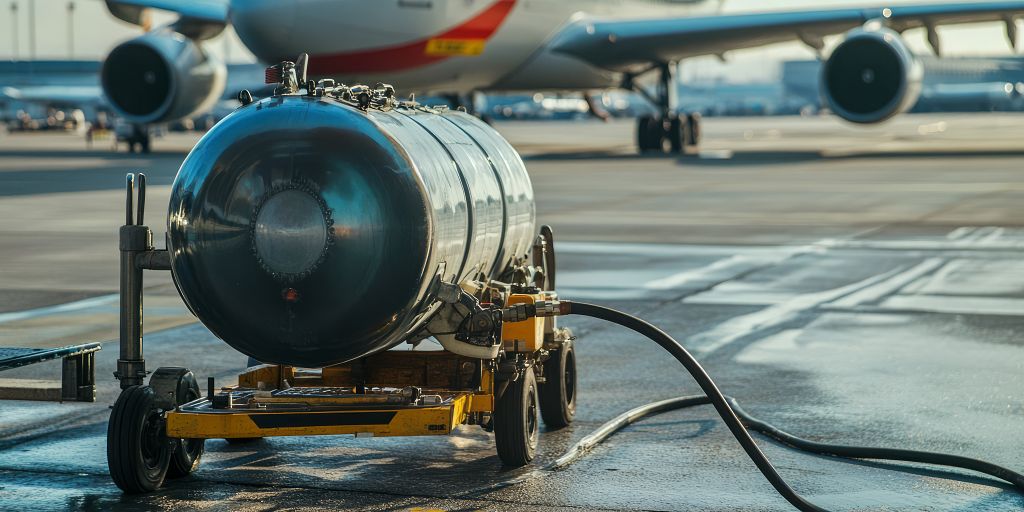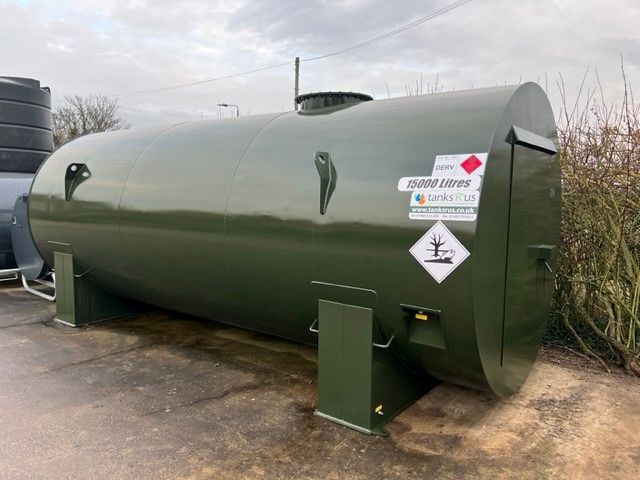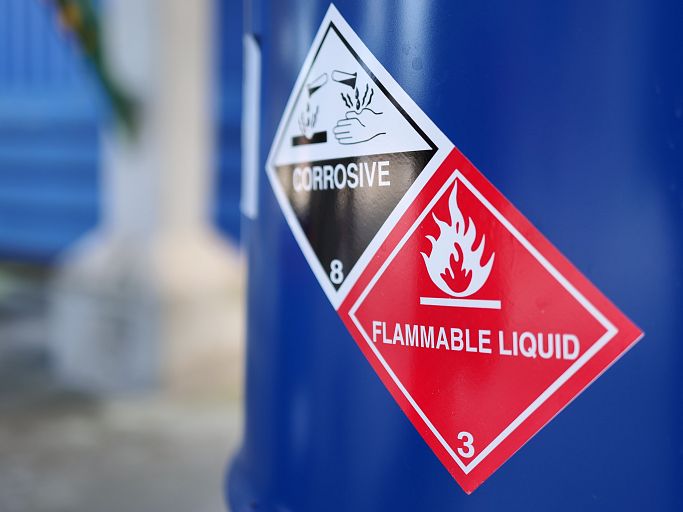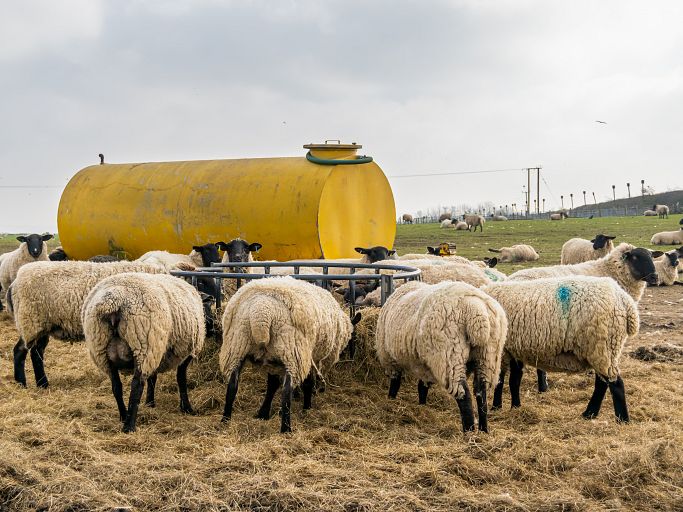- Oil
- Diesel
- Petrol
- AdBlue
- Water
- Sewage
- Hot Water Cylinders
-
Brands
- New Releases
- In Stock
- Sale
- Best Sellers
- Fuel Tank Hire
- More
-
Services
Choosing the Right Aviation Fuel Tank: A Comprehensive Guide
9th April 2025 in news
Author: Jack Dunn
When you’re dealing with aviation fuel, it’s crucial to pick the right storage tank. Whether you're managing a small airfield, operating a commercial airline or even running an aircraft maintenance business, having the right aviation fuel tanks for storage is so important for safety, compliance and operational efficiency. There are several options on the market, so making an informed decision needs a comprehensive understanding of the types of aviation fuel storage tanks that are available, as well as accounting for the specific needs of your operation and the standards which govern aircraft fuel storage.
This edition of our blog will help you choose the most suitable tank from Tanks R Us.
Why Having the Right Aviation Fuel Storage Tank Matters
The main purpose of aviation fuel tanks is to store and dispense fuel safely, reliably and efficiently. Aviation fuels (such as Jet A, Jet A-1 and Avgas) are highly flammable materials and are sensitive to contamination. Storing them improperly can lead to serious consequences - safety risks, equipment malfunction and even catastrophic failure. Beyond the safety issue, having the right tank ensures compliance with regulatory bodies (such as the Civil Aviation Authority in the UK), environmental standards and industry best practices. It can also assist with operational logistics, reduce downtime and extend the life of the tank and the aircraft it services.
Types of Aviation Fuel Tanks
There are several types of aviation fuel tanks, each suited to different needs and environments. Understanding the main options will help you find the appropriate tank from Tanks R Us to meet your needs.
Above-ground storage tanks: Also referred to as ASTs, these are the most common and versatile types of tanks for aviation fuel. They’re relatively easy to install, inspect and maintain. ASTs can either be fixed or mobile, and they’re ideal for airfields and airports that require flexible refuelling options. ASTs come in various capacities and are often constructed from steel or aluminium coated with corrosion-resistant materials. Secondary containment (bunding) is also usually required to prevent leaks or spills from impacting the environment.
Underground storage tanks: Also referred to as USTs, these are less common in modern aviation fuel storage due to stricter regulations. USTs are still used in certain scenarios where space or security might be a concern. This type of tank is buried beneath the ground and can help maintain the ambient temperature of the fuel, reducing evaporation losses. However, USTs are more expensive to install due to the works required to do so, and they’re more difficult to maintain. Leaks can be harder to detect, making routine inspections essential.
Portable fuel tanks and bowsers: These are small, mobile tanks that allow for refuelling on site. Ideal for remote airstrips, agricultural aviation or emergency response units, portable tanks offer flexibility without the need for permanent infrastructure. They usually include built-in pumps, hoses, filtration systems and safety features (such as grounding and bonding points).
Self-bunded tanks: Also known as double-walled tanks, self-bunded tanks have an inner tank surrounded by an outer tank, which creates a built-in containment system. This reduces the need for external bunds and is an especially popular type of tank in modern aviation fuel installations due to safety, ease of transport and compliance with environmental standards.
Factors When Choosing an Aviation Fuel Tank
Selecting the right aviation fuel storage tank involves more than just capacity. There are some key factors to consider.
Fuel type: Different fuels have different storage requirements. Jet fuels and Avgas, for example, have varying volatility, chemical compositions and susceptibility to contamination. You must always make sure that the tank you have is compatible with the specific fuel type you intend to store. No ‘that will do’ substitutes!
Capacity: Don’t think only about your current fuel usage, but also project your possible future needs. Oversized tanks might cost more upfront, but they will become cost-effective by offering long-term efficiency (less fuel deliveries required). Undersized tanks, on the other hand, could lead to operational bottlenecks.
Regulatory compliance: In the UK, aviation fuel tanks must adhere to the standards set by the CAA, the Environment Agency and any applicable health and safety laws set locally. When buying, you should always look for tanks that meet or exceed industry regulations concerning issues like spill containment, venting, grounding and fire safety.
Environmental: Spill prevention, vapour control and leak detection are essential features to look for when you’re choosing an aviation fuel storage tank. Self-bunded tanks are particularly effective at meeting the necessary environmental compliance. Choosing tanks with features that minimise evaporation and possible contamination is a way to work towards both regulatory compliance and sustainability goals.
Location and climate: Is your tank going to be used in a coastal, rural or cold-weather location? Corrosive environments may require specialised coatings or materials, while colder climates may need insulation or heating options so that fuel quality remains consistent.
Maintenance: Ease of inspection, cleaning and maintenance should also be considered when you’re selecting your tank. Above ground and self-bunded tanks offer much easier access compared to underground models.
Mobility: If your operation involves frequent relocations or temporary airfields, mobile or portable aviation fuel storage tanks may be a more practical solution for you. For static installations, fixed tanks with robust infrastructure offer better durability.
How Tanks R Us Can Help with your Aviation Fuel Storage Tank Needs
Choosing the right aircraft fuel storage solution can be daunting, especially with so many technical and regulatory factors to consider. This is where we stand out as your most reliable partner. With years of industry experience, Tanks R Us provides an extensive range of aviation fuel tanks tailored to the unique needs of aviation professionals. Whether you need a permanent fuel storage solution for a commercial airfield or a mobile tank for a remote location, we offer products that meet the highest safety, environmental and operational standards.
Whether you're building a new facility, expanding your fleet or upgrading your fuel infrastructure, choosing the right aircraft fuel storage tank is a key step. Don’t leave it to chance - trust the experts and invest in the future of your aviation operations. Talk to us at Tanks R Us!
One of the largest selections of tanks in the UK
Chat online or call us today on 01469 531229
Related Products
More Articles

HVO - The Potential Solution For A Sustainable Future
15th March 2023 in Tank accessories

The benefits of steel oil tanks for domestic heating oil
4th April 2023 in oil

Top Safety Tips for Handling and Maintaining Chemical Storage Tanks
8th November 2024 in oil

Essential Guide to Livestock Watering Tanks: Solutions For Remote Fields
12th February 2025 in water
Help
About Us
My Account
Newsletter Sign Up
Inspiration direct to your inbox, please enter your email below...
Help About Us My Account
© Tanks R Us. All rights reserved. Registered in England. Registration number. 05804332. VAT number 364402764
Designed and produced by Kal Group